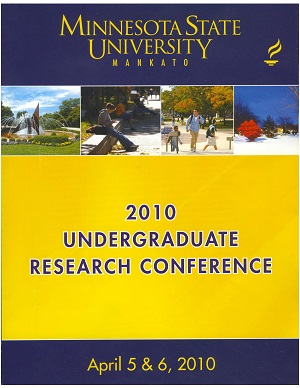Revisiting the Assessment of Punitiveness amongst College Students: A Comparison of Law Enforcement Majors with Corrections Majors
Location
CSU 253/4/5
Start Date
5-4-2010 1:00 PM
End Date
5-4-2010 3:00 PM
Student's Major
Sociology and Corrections
Student's College
Social and Behavioral Sciences
Mentor's Name
Sherrise Truesdale-Moore
Mentor's Department
Sociology and Corrections
Mentor's College
Social and Behavioral Sciences
Description
This study had scientific and practical significance. Scientifically, this research examined the attitudes of Law Enforcement and Correction majors of their punitiveness towards juvenile offenders. Practically, studying the attitudes of criminal justice and correction majors may reflect an underlying dimension of how future practitioners may impact juvenile justice and delinquency policies. With the high violent crimes among juveniles in the United States, which ultimately have generated punitive policies, such as juvenile transfer waiver laws, it is crucial that scholars investigate factors that may influence how future practitioners may impact the lives of our juveniles. From this study I hoped to find out whether or not higher education within corrections and law enforcement discipline, had a relationship to biases held within practitioners that ultimately are work in the field. The participants of the study were junior and senior corrections and law enforcement majors enrolled at Minnesota State University, Mankato randomly selected for participation by the courses in which they were enrolled. A questionnaire was used to assess their punitiveness toward juveniles. Participants were asked to indicate the number that best represented how they felt about each of the given statements based on a likert scale. Higher scores indicated greater amounts of punitiveness toward juvenile policies and offenders.
Revisiting the Assessment of Punitiveness amongst College Students: A Comparison of Law Enforcement Majors with Corrections Majors
CSU 253/4/5
This study had scientific and practical significance. Scientifically, this research examined the attitudes of Law Enforcement and Correction majors of their punitiveness towards juvenile offenders. Practically, studying the attitudes of criminal justice and correction majors may reflect an underlying dimension of how future practitioners may impact juvenile justice and delinquency policies. With the high violent crimes among juveniles in the United States, which ultimately have generated punitive policies, such as juvenile transfer waiver laws, it is crucial that scholars investigate factors that may influence how future practitioners may impact the lives of our juveniles. From this study I hoped to find out whether or not higher education within corrections and law enforcement discipline, had a relationship to biases held within practitioners that ultimately are work in the field. The participants of the study were junior and senior corrections and law enforcement majors enrolled at Minnesota State University, Mankato randomly selected for participation by the courses in which they were enrolled. A questionnaire was used to assess their punitiveness toward juveniles. Participants were asked to indicate the number that best represented how they felt about each of the given statements based on a likert scale. Higher scores indicated greater amounts of punitiveness toward juvenile policies and offenders.
Recommended Citation
Threatt, Briana. "Revisiting the Assessment of Punitiveness amongst College Students: A Comparison of Law Enforcement Majors with Corrections Majors." Undergraduate Research Symposium, Mankato, MN, April 5, 2010.
https://cornerstone.lib.mnsu.edu/urs/2010/poster-session-B/24




